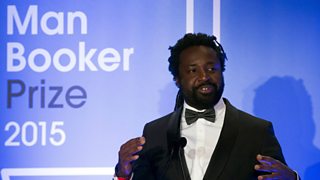Facts and Fiction: eight things you need to know about The Booker Prize
Booker #Booker

1. Booker, Bingo and Bounce
It has been referred to as ‘Posh bingo’ by Julian Barnes, who finally won in 2011 after three previous nominations, but the Booker is not to be sniffed at. To win can be life changing.

Marlon James, winner in 2015
In a bid to rival France’s Prix Goncourt, publisher Tom Maschler, who died last month, persuaded food group and sugar trader Booker-McConnell to sponsor the literary prize for its first three years starting in 1969.
Maschler’s intention was to promote the finest fiction by rewarding the best novel of the year written in English and published in the United Kingdom. The judging criteria: Look for a sustained and unified work of fiction. The award should go to the best novel, and not to an author’s body of work. The fiscal benefits of a nomination, and the increase in sales it could bring to an author and publisher, would become known as ‘the Booker bounce’.
2. How would you spend your winnings?
As well as the sales bounce, the Booker pot contains hard cash. The original cash prize started at £5,000, rose to £10,000 in 1978, and now stands at £50,000. Each shortlisted author receives £2,500 and a specially bound edition of their book.
Asked about spending his winnings, Kingsley Amis suggested in 1986, ‘booze’ and ‘curtains’. In 1990, AS Byatt famously announced that she would buy a swimming pool for her house in Provence. Howard Jacobson, a winner in 2010, had promised to buy his wife a new handbag, and in 2015 Marlon James had his sights set on an Ozwald Boateng suit. For P.H. Newby, Booker’s first ever winner in 1968, it helped pay off some of the mortgage.